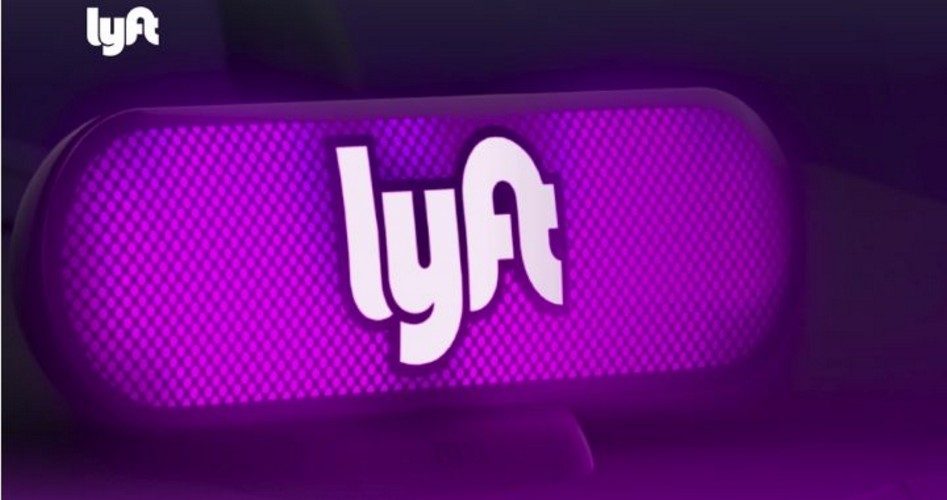
By declining to hear an appeal, the Supreme Court on Monday essentially declared that rules protecting the taxi cartel in Chicago were null and void, thus expanding passenger freedom. As an attorney with the Institute for Justice (IJ), which represented Chicago Uber driver Dan Burgess, explained: “Today’s decision makes clear what [IJ] has said for years. The Constitution does not require [city] governments to stick with outdated protectionist regulations in the face of technological innovation.”
When Uber and other ride-sharing companies entered the Chicago market several years ago, they soon became a thorn in the side of the taxi cartel that had operated under protectionist rules dating back to 1937. Those rules limited the number of cabs serving customers in the Windy City by offering a fixed quantity of medallions for sale. As demand increased but supply remained fixed, the value of those medallions increased. By 2014 a taxi medallion was selling for $357,000.
Today, thanks to the technology revolution that allows customers to hail a cab from their phone, those medallions are selling, if a buyer can be found, for $60,000. Gross revenues for the Chicago taxi industry have been cut in half.
When Rahm Emanuel’s city council threatened to apply the same protectionist rules to the new competition, Uber and Lyft threatened to leave. But by then it was too late. Some 90,000 Chicagoans had signed up as Uber and Lyft drivers and so the council relented, offering compromise rules to keep them operating in the city while trying to placate the taxi cartel. Ride-sharing drivers would no longer be required to be fingerprinted (for six months while a commission “studied” the matter), hold a chauffeur’s license that required a $300 classroom training, follow the fare regulations imposed on taxicabs, or adhere to the same vehicular inspection mandates, along with other rules.
Big taxi sued over the compromise and Judge Richard Posner rejected it, writing:
When new technologies or new business methods appear, a common result is the decline or even the disappearance of the old.
Were the old deemed to have a constitutional right to preclude the entry of the new into the markets of the old, economic progress might grind to a halt. Instead of taxis, we might have horse and buggies; instead of the telephone, the telegraph; instead of computers, slide rules. Obsolescence would equal entitlement.
That’s how a judge explains what happened in Chicago and wherever else customers are seeking to get a lift from A to B: Phone apps offer cheaper, faster, safer and, some say, more enjoyable alternatives to Big Taxi. When cities or other governments try to get in the way, they’re out of line, and protectionist rules they make cannot legally be sustained.
Naturally, the Supreme Court’s nonruling has upset those with vested interests in the past. That included Mara Georges, a Chicago attorney representing Big Taxi. Monday’s decision by the court not to take her appeal means, she said, “that fleets will disappear and you’ll have taxis owned by individual owners. The problem with that is that much of the control the city has exercised over taxicabs has come through the fleet.” She added:
It’s going to end up being more of a Wild West situation where you’ve got all kinds of independent drivers out there just looking to pick up fares and make as much money as they can.
The ripple effect is likely to reach every other city where Big Taxi tries to maintain its monopolies. In New York, for example, medallions were selling for upwards of a million dollars just a few years ago, but now buyers are scarce, and prices have fallen so far that banks are seeing their loans go into default. In January Bloomberg noted that more than 80 percent of Capital One’s $690 million in loans for taxi medallions were at risk of default. BankUnited told its investors last November that three out of every five loans it made to fleets buying medallions were under water.
The decision by the Supreme Court not to hear Big Taxi’s appeal is a victory for “transportation freedom,” according to a press release from the Institute for Justice: “The Court’s [non]decision has cleared the way for transportation freedom across the country. In city after city, we are seeing lawsuits like these filed by incumbent businesses that want to freeze the current regulatory environment in amber. And these lawsuits, rightly, are failing. Consumers and entrepreneurs, not lawyers and bureaucrats, should decide what transportation options are available.”
An Ivy League graduate and former investment advisor, Bob is a regular contributor to The New American magazine and blogs frequently at LightFromTheRight.com, primarily on economics and politics. He can be reached at [email protected].
Related articles:
Another Setback for Big Taxi: Uber, Lyft OK’d to Serve Atlanta Airport



